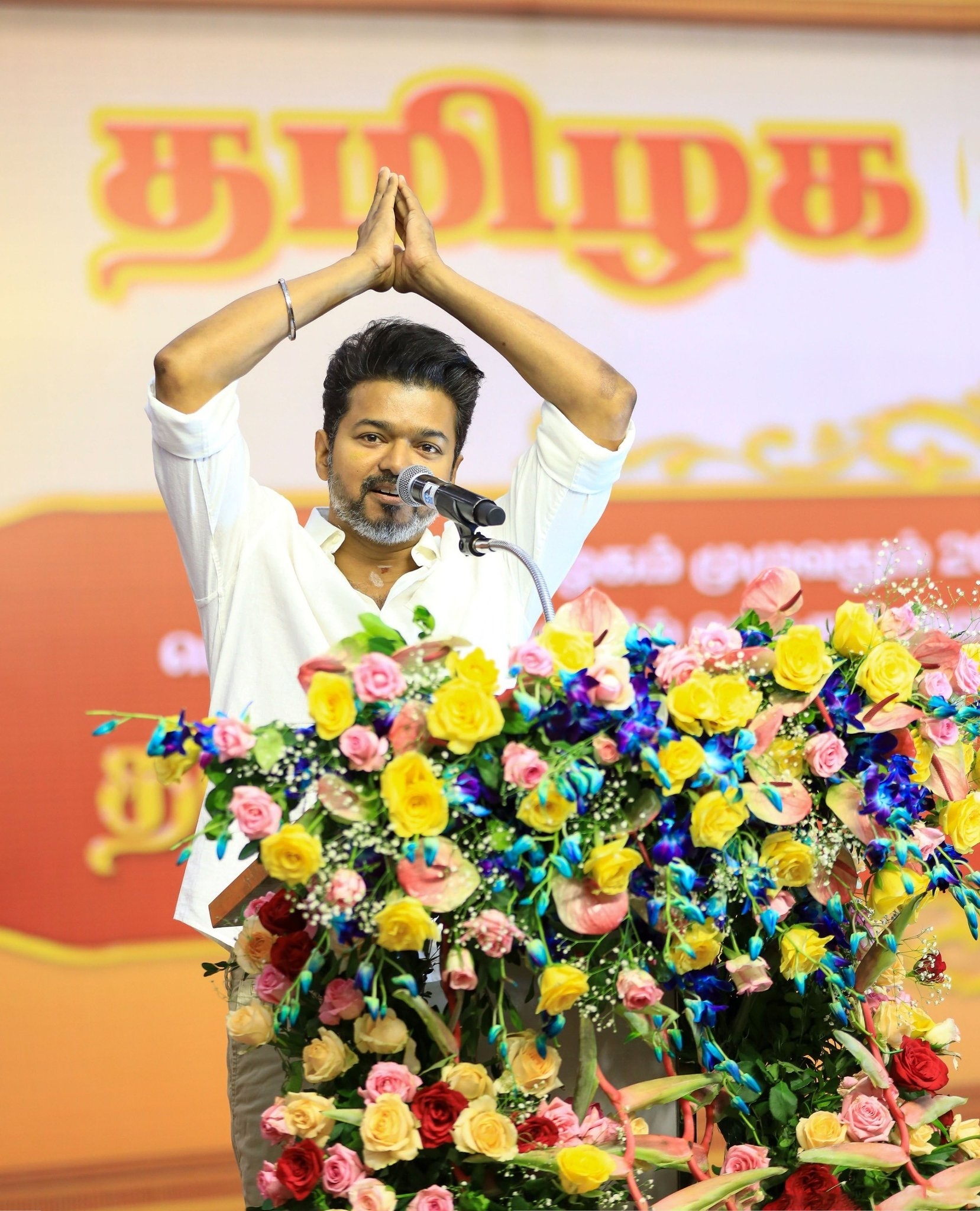TVK, Led by Vijay, Opposes NEET, Waqf Bill, and One Nation One Election

Tamil Nadu politics has been witnessing a notable movement led by Vijay and his political outfit, Tamilaga Vettri Kazhagam (TVK). Known for its strong stands on issues concerning Tamil Nadu’s identity and autonomy, TVK has recently voiced firm opposition to several national-level policies, including the National Eligibility cum Entrance Test (NEET), the Waqf Board Bill, and the proposed One Nation One Election initiative.
TVK’s objections center on concerns about preserving Tamil Nadu’s unique cultural and educational rights, as well as the state’s autonomy within the federal structure of India. Here’s an in-depth look at the reasons behind TVK’s stance on each of these issues and what they signify for the state’s political landscape.
1. Opposition to NEET
The NEET examination has long been a contentious issue in Tamil Nadu, where many feel that the standardized national test puts local students, especially those from rural backgrounds, at a disadvantage. The argument from TVK and other Tamil Nadu-based political organizations is that NEET does not take into account the state’s unique educational system and instead favors students from more privileged backgrounds who can afford extensive coaching.
TVK, under Vijay’s leadership, has been vocal about the need for a more inclusive approach that allows students from all backgrounds to pursue medical education. The organization believes that the NEET exam compromises Tamil Nadu’s educational ethos, making it harder for students from state board schools to compete fairly. TVK advocates for a system that supports local students and aligns with Tamil Nadu’s education policies.
To understand more about TVK’s stance on NEET, visit Tamilaga Vettri Kazhagam’s recent initiatives that explore their approach to educational reform.
2. Concerns Over the Waqf Board Bill
Another issue that has captured TVK’s attention is the Waqf Board Bill, which grants significant powers to the Waqf board in terms of managing properties deemed as Waqf assets. TVK argues that the bill’s provisions could infringe on the rights of private property owners, leading to potential conflicts over land ownership in Tamil Nadu. TVK asserts that the bill could disproportionately affect certain communities in Tamil Nadu, disrupting social harmony in the state.
Vijay and his party members have expressed concerns that the bill lacks transparency and could lead to mismanagement or misuse of land, impacting Tamil Nadu’s residents. TVK calls for a more balanced approach that respects religious considerations but also protects the rights of private property owners.
Learn more about TVK’s position on protecting local rights in Tamil Nadu by exploring TVK’s recent initiatives and vision.
3. Opposition to One Nation One Election
The One Nation One Election proposal has sparked a debate across India, with TVK joining the voices of opposition. The policy proposes synchronizing all elections—both central and state—under a single electoral cycle. While the central government argues that it would reduce election expenses and administrative burden, TVK argues that it could undermine the political autonomy of states like Tamil Nadu, where regional issues require focused and locally driven governance.
TVK leaders argue that the One Nation One Election framework could dilute Tamil Nadu’s voice in the larger national context, leading to a situation where local issues are sidelined. By opposing the proposal, Vijay’s party aims to preserve the distinct political identity of Tamil Nadu and ensure that the state’s issues receive dedicated attention in the legislative arena.
TVK’s Growing Influence and Future Goals
TVK’s opposition to these national-level policies represents more than just political posturing—it reflects a commitment to advocating for Tamil Nadu’s rights and cultural identity. Vijay’s leadership has brought renewed vigor to Tamil Nadu’s regional politics, emphasizing local representation in the face of national policies perceived as encroaching on the state’s autonomy.
As TVK continues to gain traction, its stance on issues like NEET, the Waqf Bill, and One Nation One Election is likely to resonate with a growing segment of Tamil Nadu’s population, especially those concerned with protecting Tamil culture and interests. Vijay’s rising popularity and his dedication to addressing the concerns of Tamil Nadu’s citizens have positioned TVK as a significant force in the state’s political landscape.
For an overview of TVK’s recent activities and initiatives under Vijay’s leadership, check out TVK’s conference highlights and their vision for Tamil Nadu.

